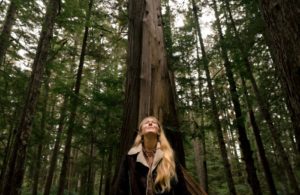I’ve learned a lot about treaties lately.
Too often when I’m advocating for Indigenous rights I get an uninformed settler telling me, “Well, they signed the treaties. They agreed to the way things are.”
I know now that this rebuttal is completely irrelevant.
During the time of early European settlement here on Turtle Island, the Indigneous nations whose lands we were seeking to occupy actually wanted to develop a close bond with us. At that point, any treaties conceived here had been between Indigenous communities and were built on respect and a desire for mutual support. They were formal, friendly agreements, where a clear understanding was laid out as the parties worked together and helped one another. These treaties united those involved in a family-like relationship.

When so-called “Canada” was established, this is the approach that Indigenous nations brought into treaty agreements with the Crown. On the other hand, the Crown was coming into these agreements with a business mindset, to gain a hold of and claim rights to the lands and waters (resources) that were clearly and rightfully under Indigenous jurisdiction.
European settlers took advantage of the kindness and generosity of Indigenous nations who welcomed them. It wasn’t long before these agreements became lopsided and, gradually, the Crown began overtaking and overharvesting the resources allotted to them. Without consulting or transparently discussing the adjustment with the nations involved, excuses were created to dismiss the legitimacy of previous arrangements.
Many, many generations later, the actual “treaty agreements” have become so skewed and muddled, with these lands now housing more settlers than Indigenous peoples, that folks don’t actually dig into the history of treaties on these territories, how they were established, or what the original intention behind them was.
Today it seems as though the Crown will sign and agree to any document that may give them good standing in the moment, because, down the road, they can too easily create yet another document or law that nullifies any previous treaty or understanding.
I wonder, when will the Crown’s ability to create or void treaties, laws, and legal documents at a whim come into question? When will Indigenous voices get a rightful say in what happens to and on their land? What is it going to take?
Before trying to silence Indigenous peoples and their allies with the flimsy argument that “they signed the treaties too,” people should do some research. Once upon a time on these territories, the first peoples viewed treaties as a family-like bond. The westernized filter we see our country’s founding stories through is not the whole picture. When it comes to Turtle Island, there is always an Indigenous perspective to consider, and, ideally, prioritize.
